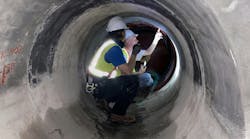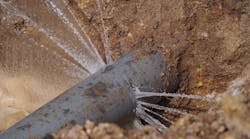A three-year project is targeting improved management of transboundary rivers in the Eastern Baltic Sea Region, which has suffered from eutrophication as a result of indutrial and agricultural pressure.
The Stockholm International Water Institute (SIWI) is implementing a project to enhance civic action with partners in Russia, Kaliningrad Oblast, Lithuania, Poland and Sweden.
The project “Building a framework for collective action in the management of the transboundary waters in Kaliningrad, Russia, Lithuania and Poland (Baltic Sea region)” is funded by the Swedish Institute and will be implemented over three years (2012-2015).
The project is implemented by SIWI in partnership with the Northern Dimension Foundation (Kaliningrad Oblast, Russia), the Institute of Economy of the Russian Academy of Sciences (Russia), Global Water Partnership (Poland and Lithuania) and the Swedish Agency for Marine and Water Management (Sweden), with support from the Stockholm Environment Institute (SEI).
The health of the entire Baltic Sea ecosystem is severely degraded. Pressure from agriculture, energy production, industries and maritime sectors have severely compromised the sea’s health, with most areas now affected by eutrophication, hazardous substances and degraded biodiversity.
Collaboration between the EU member states and Russia on its shared river basins is critical to tackle the deteriorating state of the common Baltic Sea but collective action in this part of the Baltic is lagging behind, said SIWI.
The transboundary Neman (Poland, Lithuania, RF Kaliningrad Oblast, and Belarus) and Pregola (Poland and RF Kaliningrad Oblast) are two river systems draining into the Baltic Sea where multilateral cooperation has been called "poor" and investment in their management "limited".
In previous work undertaken by the partners (2009-2011), it was identified that there was a need for improved water management in this part of the Baltic region. There is scope to achieve major economic gains in multiple sectors, improve ecosystem services while also reaching regional cooperative gains, according to SIWI.
Aims of the partnership are to build an informal and professional partnership to formulate water and environmental management priorities and investments into an economic framework, recognising green and smart growth potential.
The intention is to facilitate official dialogue, cooperation and investment on the shared river basin systems between the Kaliningrad Oblast, Poland, Lithuania and the broader Baltic Sea community of actors, providing incentives for stakeholders to seek more information on how to transform degraded water resources into opportunities.
Both EU and Russian regulations offer opportunities for joint management. Further arguments and clear investment frameworks need to be developed to stimulate formal cooperation based on best practice and good data.
###


